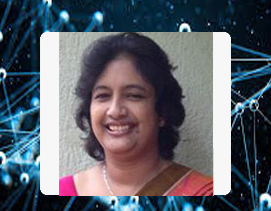Comprehensive Solution for the Medium and Small Scale Open Dumps for Mitigating Pollution and Value Addition
NRC Grant No: NRC TO 18-21
Research Institute: University of Sri Jayewardenepura
Amount Funded: Rs. 49,410,000.00
Date of Awarded: 25th October 2018
End Date: 25th October 2023


Summary
At present Municipal Solid Waste (MSW) in Sri Lanka is predominantly disposed in open dumps, which typically have low costs and require only limited pre-processing; however, open dumping is hazardous to the environment and its negative socioeconomic impact far exceeds the cost savings. Sri Lanka has around 262 dumpsites and there is no immediate plan for rehabilitating these sites and for addressing a growing environmental problem. Currently available MSW disposal technology alternatives such as incineration and waste-to-energy are costly. Although there is widespread interest to produce compost from organic solids in MSW, composting alone does not offer a comprehensive solution to mitigate contamination that arises from disposal of the residual MSW. Hence, an integrated sustainable approach is critically needed to manage MSW in Sri Lanka while reducing open dump disposal and minimizing the impact on the environment and public health. Treatment and valorization of the organic waste fraction (biowaste) for biochar production through a prototype carbonizer offers a highly promising alternative for diverting MSW from open dumps in urban and semi urban areas and for achieving increased pollution mitigation and value added products. Thus, the project objectives are: to characterize MSW to demonstrate the viability of producing biochar from MSW and improving the carbon footprint through carbon sequestration; to design and fabricate a cost-effective prototype to convert biowaste in MSW to the value-added carbonized biochar product; to study the effectiveness of biochar-embedded barricades and bio-geo constructed wetlands for sustainable leachate treatment; and to investigate the performance of a slow-releasing biochar composite-hybrid fertilizer by mixing with compost. The engineered prototype will be designed to be applicable cost-effectively for both medium and small-scale dumps. The proposed biochar-based products, e.g., hybrid fertilizers, have considerable demand and market value. In addition, the proposed MSW-based biochar can be used directly as a material for landfill capping or used for phytocapping of dumps to reduce greenhouse and toxic volatile organic gas emission into the atmosphere. The direct land-application of MSW-derived biochar improves the soil and is highly beneficial in agriculture. The prototype for carbonization is expected to be with less production cost to facilitate mass scale production for small and medium scale dumps. Overall, the proposed approach to manage MSW by converting the organic solid waste fraction to the high-valued and environmentally beneficial biochar-based products could help promote a green economy in Sri Lanka while providing municipalities a sustainable, cost-effective approach with a special focus on reducing the quantity of waste and mitigate pollution simultaneously.
Objectives
- To characterize MSW by performing a proximate and ultimate analysis to demonstrate viability of producing biochar from MSW in Sri Lanka (representative set of samples across several economic classes – waste generation situations) and calculate carbon footprint
- To design and fabricate an economical prototype to convert organic municipal solid waste into a value added carbonized product
- To design and develop sustainable environmental remediation process through leachate characterization and treatment using biochar embedded barricades as well as the carbon sequestration capacity
- To improve compost to a slow releasing biochar composite-hybrid fertilizer
Major Equipment Facilitated by Grant
- Microwave Plasma Atomic Absorption Spectrometry
- Ultra-pure water system
- Programmable furnace
- Shredder
- High speed centrifuge
- Microwave digestion system
- Bomb Calorimeter
Research Team
Designation
Principal Investigator (PI)
Deputy Principal Investigator (DPI)
Co- investigator
Co- investigator
Co- investigator
Co- investigator
Co- investigator
Co- investigator
Co- investigator
Name
Dr. Meththika Vithanage
Dr. B.C.L. Athapattu
Prof. Ajith de Alwis
Dr. Mahinsasa Narayana
Dr. A. K. Karunarathna
Prof. Ranji Ranjithan
Dr. Mahinsasa Narayana
Prof. Taeho Lee
Dr. Maneesha P. Ginige
Institute
University of Sri Jayewardenepura
The Open University of Sri Lanka
University of Moratuwa
University of Moratuwa
University of Peradeniya
Waste Management Authority, Western Province
North Carolina State University, USA
Pusan National University Korea
CSIRO, Australia
